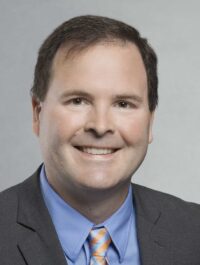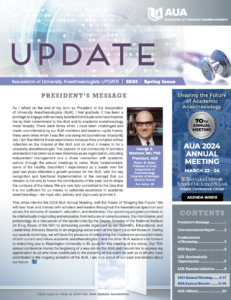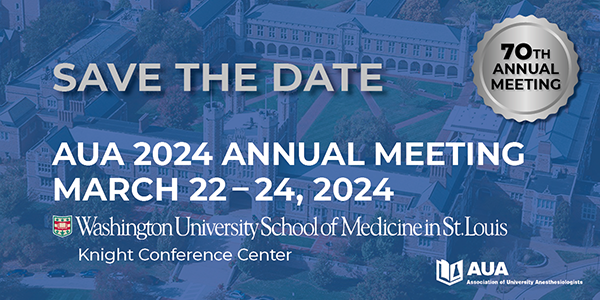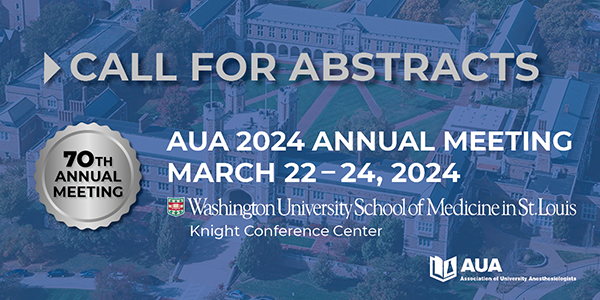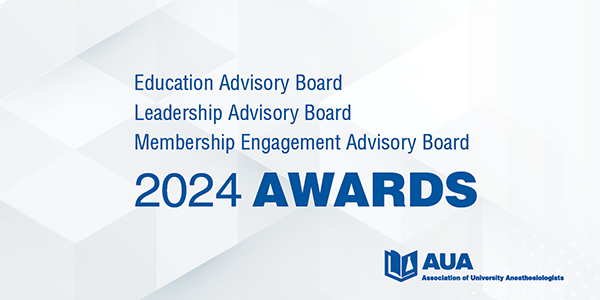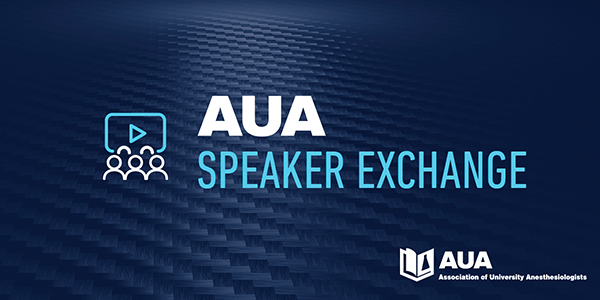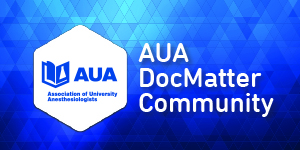Academically Opportunistic
Our chosen field is one that currently wrestles with a diversity of challenges that threaten both the specialty and those who work to administer anesthesia in a safe and efficacious manner. Only recently has the anesthesiology workforce weathered a global pandemic that saw members of our profession thrust into the frontlines of a struggle of epic proportions. Emerging from this epidemiological calamity, our academic colleagues face a variety of insults that continue to threaten and overwhelm professional recovery efforts. Electronic medical records that prioritize profit-driven click requirements over the wellness of those who risk personal wellness to care for others have, in many cases, substantially worsened the clinical work environment. Administrators who have failed in their promise to deliver servant leadership and now seek to serve only themselves have disenfranchised, discouraged, and disengaged those who might have otherwise emerged as future leaders. Finally, a tsunami of clinical work threatens to overwhelm those who have, for so long, kept the surge in check and has resulted in a diminished collective interest in academic advancement and achievement. As a result, physical and moral exhaustion now remains a constant professional companion and threatens those who devote measures of themselves to pursue the betterment of others.1 The manifestation of these assaults is tangible as significant numbers of our ranks have now elected to leave either the academic setting or profession entirely.
As academically inclined anesthesiologists, it is not just clinical demands that stress the attention and hinder the happiness quotient of our colleagues seeking to enhance our collective understanding of anesthesia processes, indications, and implementations. These advancements remain vital as our field seeks to understand and manage an increasingly complex patient population and diverse spectrum of surgical offerings. While anesthetic mortality was once a familiar perioperative companion, we have now entered an era where the surrender of a life in a patient without a foot already in the River Styx has become something now worthy of etiology investigations. Despite previous advancements and distinctions, it remains critical that our field maintains an investigational zeal that assures continued developmental progress and clinical improvements. Perioperative morbidity and mortality have been bludgeoned but not yet defeated and now is not the time to deprioritize efforts to further understand and improve the work that we do.
For anyone seeking to conduct a scientific inquiry, there exist burgeoning barriers to progress that might derail or discourage efforts to pursue knowledge inquiries. Certainly, review boards, competing clinical demands, and a diminished emphasis on academic productivity have collaborated to diminish collective interest in scientific advancement. Beyond these constraints, we are simultaneously plagued by potentially friendly fire or self-inflicted limitations on academic advancement. In an effort to combat the rising tide of burnout and exodus from the field, an increased emphasis has been placed on metering academic efforts and seeking to avoid those activities that might be deemed as not specifically aligning with a pre-determined path to advancement in clinical rank or funding acquisition. However, as we have elevated committees to erect additional engagement barriers on behalf of junior faculty and worshipped at the altar of “just say no” dogma, an undeniable truth is that burnout data for academic physicians has only continued to worsen at an alarming rate.
With the failure to protect early career faculty by limiting academic engagement becoming more apparent, is it now time to consider that what had been protecting our faculty was indeed the thing that has been recently vilified? Is it possible that these academic activities provided a spark of engagement that softened the demands imposed by bureaucratic administrators and clinical demands? Is it conceivable that these stimulating pursuits provided academicians with substantial purpose and that this purpose provided faculty with the “why” to overcome and invent the bearable “how?”
Perhaps, it may be time to reconsider the academic constraints and discouragement that has been unleashed on early career faculty and, instead, consider transitioning to committees focused on encouragement and support. At the very least, the reflex to default to “no” requires re-evaluation or we risk further disengagement and purpose-deficient careers for faculty pursuing careers in academia. Much like forks in the road, it can be difficult to see what might lie beyond the curve and discouraging our faculty from exploring these serendipitously discovered winding roads denies them potentially career-defining chances at uncovering novel sources of passion, inspiration, and professional fulfillment.
As academic mentors and leaders of academic departments, we have an important role to play in the molding of early career faculty that should not be taken lightly. While there may be some wisdom in avoiding overdiversification and overextension, it is incumbent upon us to consider the potential positive impacts that might be derived from the ignition of new areas of interest and optimize conditions that might facilitate an enhanced ability to incorporate scientific inquiry. The next time a mentee presents with a novel idea that seems out of line with their current area of emphasis, consider the potential positive aspects of this novel spark, how losing out on this novel area of investigation may actually result in harm, and avoid reflexively voicing opposition. Instead, consider options for crafting feasible implementation workflows that allow for a realization of benefits associated with encouraging academically opportunistic pursuits and encountering what happens when our faculty pull that string, follow those breadcrumbs, and explore wandering paths to a long and fulfilling career in academic medicine.
- Afonso AM, Cadwell JB, Staffa SJ, Sinskey JL, Vinson AE. U.S. Attending Anesthesiologist Burnout in the Postpandemic Era. Anesthesiology. 2024 Jan 1;140(1):38-51. doi: 10.1097/ALN.0000000000004784. PMID: 37930155; PMCID: PMC10751072.
